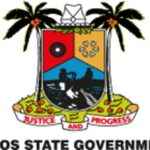FG to enforce telecom Right of Way, ALTON proposes Executive Order
The Federal Government says it will revisit the National Economic Council Resolutions on Right of Way (RoW) in the telecommunications industry.
The Vice President, Prof. Yemi Osinbajo, stated this in Lagos on Thursday at the Nigerian Telecom Leadership Summit 2019 organised by the Nigerian Communications Commission (NCC) with the theme, ‘Repositioning the Nigerian Telecom Industry for the Future: Prospects and Challenges’.
Represented by Sen. Babafemi Ojudu, Special Adviser to President Muhammadu Buhari on Political Matters, Osinbajo said that a revisit would compel state governments to implement the resolutions.
The News Agency of Nigeria (NAN) reports that the National Economic Council (NEC) has approved a policy to harmonise RoW charges being paid by telecommunication companies and related public utility infrastructure on local government, state, and federal highways.
The Chairman of Association of Licensed Telecom Companies of Nigeria, ALTON, Gbenga Adebayo, an engineer, at the summit proposed an Executive Order against abusers of telecom infrastructure, multiple taxation and Right of Way.
The Federal Government said that the new policy would encourage co-location of the companies’ fibre optic cables, minimise the spaces occupied and the burden on the roads as well as reduce taxes payable by the telecommunication firms.
He said that the FG was concerned about the RoW issue that had continued to linger, particularly, at state levels.
“We will revisit the National Economic Council Resolutions, with a view to revising it and encouraging the state governments to see to its practical implementation.
“The Federal Government under His Excellency, President Muhammadu Buhari, is desirous of bridging the digital divide.
“We understand the challenges of deploying infrastructure that drive access to telecommunication services to very wide geographical locations in Nigeria.
“We are also aware of the security challenges that face different economic activities in some parts of the country, which may have led to disruption of services, and in some cases, led to attendant destruction of infrastructure.
“But we will continue to put our best efforts to ensure that we contain these challenges,” Osinbajo said.
He added that government was currently looking at the very important investment areas of interest as highlighted by the telecommunication regulator.
According to him, of particular attention is the desire by NCC that Nigeria needs a deployment of at least 120,000 metropolitan optic fibre connectivity to achieve pervasive broadband penetration across the country.
He said that government was looking at various possibilities in achieving the 120,000 optic fibre, including an open invitation to the private sector to partner with government in this direction.
Osinbajo noted that the Presidential Enabling Business Environment Council (PEBEC) was set up for the purpose of eliminating bureaucracy and constraints to doing business in Nigeria.
He said that PEBEC had already engaged NCC, and had been working in tandem with the regulator and other private organisations, to realise several objectives of government in the sector.
According to him, the Federal Government is encouraged by the efforts of the NCC to bridge the gap, in spite of the challenges.
“We have taking a very keen interest in how the commission implements appropriate strategies to connect more than 40 million Nigerians identified to have been left out in the current infrastructure layout.
“We are also hopeful, that through the provision of licenses to eligible infrastructure provisioning organisations (lnfracos) for deployment of fibre to all the geopolitical zones under the Open Access Framework, we will begin to yield fruitful results that will translate in available, accessible and affordable broadband services across the country,” he said.
A former Minister of Communication Technology, Dr Omobola Johnson, said that an Executive Order would swiftly address the issues of RoW and multiple taxation in the telecommunications industry.
Johnson said that the issues of RoW and multiple taxation had been deliberated on for a long time, hence, needed Federal Government’s strong intervention.
She said that the regulatory body needed to be ahead of the industry, as the industry was rapidly changing.
“The role of the regulator really has to change from being just the Mobile Network Operators (MNOs) to being a digital industry,” Johnson said.








